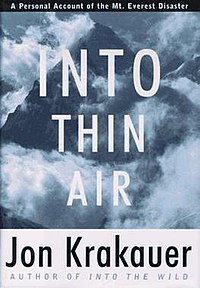Cloud Atlas
David Mitchell
2004
Britain
Plenty
of authors are willing to tell us how bad things are. Literary fiction readers lack
not for doom and gloom. Even that former harbinger of a comedic, post-racial
society to come, Zadie Smith, seems to want to tear down hope in her latest
tome, NW. Maybe I should be okay with
that. And maybe I’m just getting old, but I admit – I want literature to offer a
silver lining of hope even at the bottom of a dark truth cloud. Like I tell my
students – it’s easy to point out what’s wrong; it’s a lot harder to figure out
where we go from here. Cloud Atlas, a
beautiful, dense, “Russian nesting doll” of a book, manages to do both.
Cloud Atlas is about reincarnation. (If you’re not
sure just watch the movie; it is impossible to miss). The lives of the six
characters it follows don’t overlap so much as brush up against one another.
Luisa Rey swears she’s heard the Cloud
Atlas Sextet by Robert Frobisher somewhere before. Robert Frobisher reads
Adam Ewing’s diary. Zackary of Baily’s Dwelling worships Sonmi as a god. Sonmi
is influenced by a film made by Timothy Cavendish. Timothy Cavendish reads
mystery novels written by Luisa Rey. And so on. The book begins in 1845 and
moves chronologically through time to the two futuristic narratives – Sonmi, a
“fabricant” in a “corpocratic” society in 2144, and Zackary, a goat herder in
Hawaii in a distant future after “the fall.” After this outward movement, the
book moves in again, like clouds wafting in a never-ending progression across
the sky. The cyclical rotation is highly thematic. David Mitchell wants us to
know that he’s talking about recurrence, repetition, eternity, the way the
Earth rotates, and our continuous cycles around the wheel of the Earth, from
birth to death to birth again. Though he mentions Christian, secular, and scientific
ideas, as well as Buddhist ones, Mitchell suggests that Buddhism is the most
useful because it acknowledges reincarnation and interbeing (that we are reborn
as different people in different lifetimes, and that we are connected to
everyone else in unexpected and unseen ways). Despite several mentions of Buddhism
and strong thematic connections, Mitchell isn’t merely proselytizing; the book
is entertaining and unique enough at the level of story that it avoids being polemical
(many have written that the movie does not succeed in this regard; I would
agree, but think that it’s fun to watch anyway. Then again, I agree strongly
with its claims).
On the one hand,
the message of the text is obvious – déjà vu comes up in every section and, in
case you didn’t get it, each character has a comet shaped birthmark, suggesting
that they might be one of the others reborn. This is all familiar to me from my
study of Buddhism. But something Robert
Frobisher, the character from the 1931, says complicates my understanding of
Mitchell’s concepts of reincarnation and time. The composer, Frobisher says,
“Rome’ll decline and fall again, Cortes’ll lay Tenochtitlan to waste again, and
after, Ewing will sail again, Adrian’ll be blown to pieces again, you and I’ll
sleep under Corsican stars again, I’ll come to Bruges again, fall in and out of
love with Eva again, you’ll read this letter again, the sun’ll grow cold again.
Nietzsche’s gramophone record. When it ends, the Old One plays it again, for an
eternity of eternities.” According to Frobisher, not only will we be reborn to
another life on Earth, but maybe into the very same one. The structure of the
book also indicates that we are doomed, if not to literally return to the same
time, place, and body, then at least to repeat the same patterns “for an
eternity of eternities.” Is there no Nirvana, no extinction, no respite from
the cycle to look forward to?
Cloud Atlas is not only about
reincarnation but also about the nature of that recurrence. The book suggests
that though we progress, we also fall back. The struggle between the forces of
good and evil is ongoing. While Mitchell doesn’t offer a lot of hope that evil
will ever be permanently abolished, he does hint that good could be. So, while
it seems we are unable to permanently “fix” the world, in fact it takes our
very best efforts just to maintain the status quo. As these things tend to go,
the movie is more uplifting than the book, showing a vision of interconnection
that dwells more on the heroic acts of extraordinary individuals than the
negative doings of the masses. Still, Mitchell leaves us with a tentative hope.
At the very end the 19th century notary, Adam Ewing, expresses disgust
with the world, and the desire to create a better one for his son. To do this,
he proclaims, he will work for the Abolitionist cause. He imagines that his
father-in-law’s response to this will be that it’s an admirable but impractical
goal; people will never change; Adam’s actions will be nothing more than a drop
in the ocean. To this hypothetical critique Adam replies, “Yet what is any
ocean but a multitude of drops?” Adam wants to end slavery and, indeed, chattel
slavery was abolished. On the other hand, the book questions the “once and for
all-ness” of an idea like the “end” of slavery, since, in the future sections,
slavery returns, albeit in a different guise. The indication might be that the equally
strong forces of good and evil are at work at all times. Sometimes the good is heavier,
and sometimes the bad. What we do, Mitchell suggests, does alter the course of history, even if it doesn’t do so
permanently. We may not be able to change the nature of people in general, but if
we change the way we are, we will
affect the quality of our own and others’ worlds right now. Stasis may be the
only progress available, but it’s not nothing.




